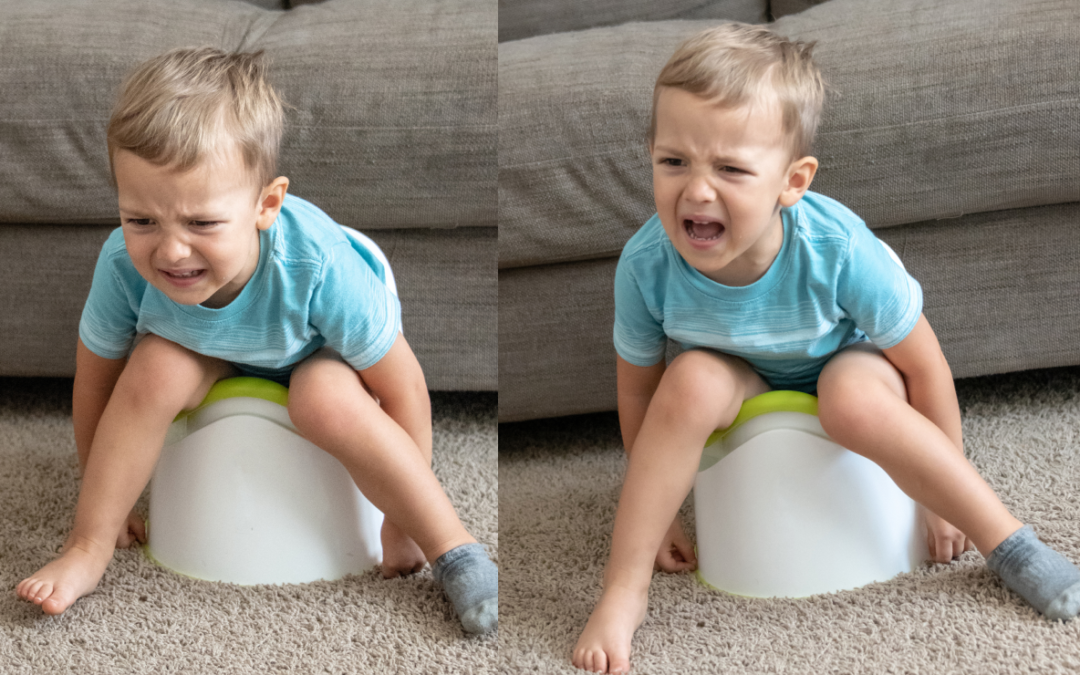So you’ve started potty training — great! We’re sure you’ve prepared your child and your home, and even bought all the gear you need. But, what you may not have been ready for are toddler potty training regressions.
Potty training regressions can happen at any time, but are most commonly seen during life events like a move or new sibling, a big change in schedule or routine, sickness, constipation, or after a negative experience —all of this can cause the child to withhold.
When you experience stalls in progress and progressions, don’t panic. According to Quiara Smith, Pediatric Pelvic Floor OT and instructor for our on-demand class Potty Training 101: The Stress-Free Guide to Success, to effectively troubleshoot potty training regressions you really need to figure out what caused the regression in the first place. Then, talk to your child about it and help them through it.
It’s important to meet your child where they are.If you really feel like you need to, you can go back to basics with setting timers, and doing prompted sit times to reinforce good habits and build confidence.
When your child is sick, toileting skills can be affected—during this time it’s most beneficial to focus on keeping them hydrated and help prevent them from getting constipated. They should be able to bounce back fairly quickly.
If you’ve started potty training and your child doesn’t seem to be making progress, it’s ok to pause and go back to diapers. Don’t worry about confusing your child, just be sure to keep doing the prep and pre-training activities, modeling toilet usage, and reading books about the potty. After a week or two, you can try again.
While potty training regressions are normal and are bound to happen, there are some issues that are best handled by professionals. Some signs you should seek support from a pediatric pelvic health specialist are:
Afraid to go inside a bathroom
- Not yet understanding the steps and processes of going potty
- Not making associations between body sensations and actions
- Really resistant to sitting on the potty no matter what the parents try
- Not progressing beyond Phase 1 or Phase 2 of the potty training process.
If a child is resistant to potty training, we as a society often brush it off as being “Stubborn” or “Spirited,” but there’s often something else going on. Severe potty issues manifest as behaviors, but in order to alter those behaviors, you have to first get to the root of the cause. This is where professional support would be beneficial to help you do the detective work.
If you want to learn more ways to deal with regressions or other specific potty challenges, make sure to check out our online class, Potty Training 101: The Stress-Free Guide to Success. Our expert will walk you through every step of the way teaching you how to prepare your little one for potty training, what gear you’ll need, exactly how to teach them to use the potty and so much more.

